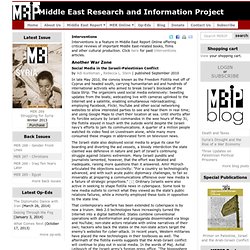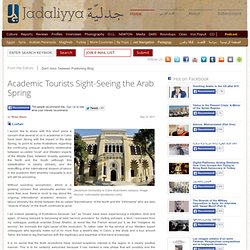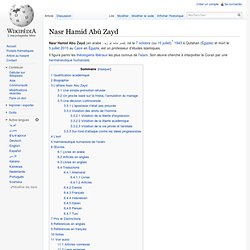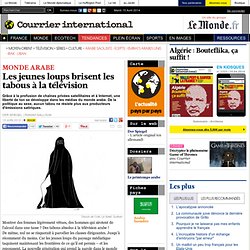

LIMAG Littératures du Maghreb. Des Films Tunisiens - des Films Tunisiens - des Films Tunisiens [الأرشيف] - منتديات تونيزيا كافيه. Another War Zone. In late May 2010, the convoy known as the Freedom Flotilla met off of Cyprus and headed south, carrying humanitarian aid and hundreds of international activists who aimed to break Israel’s blockade of the Gaza Strip.

The organizers used social media extensively: tweeting updates from the boats; webcasting live with cameras uplinked to the Internet and a satellite, enabling simultaneous rebroadcasting; employing Facebook, Flickr, YouTube and other social networking websites to allow interested parties to see and hear them in real time; and using Google Maps to chart their location at sea. Until shortly after its forcible seizure by Israeli commandos in the wee hours of May 31, the flotilla stayed in touch with the outside world despite the Israeli navy’s efforts to jam its communications.
A quarter of a million people watched its video feed on Livestream alone, while many more consumed these images in abbreviated form on television news. Live from the Front The Tweets of Zion Cellular War. MERIP Home. Academic Tourists Sight-Seeing the Arab Spring. I would like to share with this short piece a concern that several of us in academia in Cairo have been facing with the impact of the Arab Spring, to point to some frustrations regarding the continuing unequal academic relationship between so-called “local” and Western experts of the Middle East, between broadly speaking the North and the South (although this classification is clearly clichéd), and the reshuffling of the international division of labour in the academic field whereby inequality is and will still be prevailing.

Without sounding xenophobic, which is a growing concern that personally worries me more than ever, there is much to say about the ongoing international academic division of labour whereby the divide between the so called “theoreticians” of the North and the “informants” who are also “objects of study” in the South continues to grow. It is no secret that the Arab revolutions have revived academic interest in the region in a clearly positive manner. HOT SPOTS: REVOLUTION AND COUNTER-REVOLUTION IN EGYPT. Quel avenir pour le printemps des peuples arabes ? Nasr Hamid Abû Zayd. Un article de Wikipédia, l'encyclopédie libre.

Nasr Hamid Abu Zayd (en arabe : نصر حامد ابو زيد), né le 7 octobre (ou 10 juillet)[1] 1943 à Qufahan (Égypte) et mort le au Caire en Égypte, est un professeur d'études islamiques. Il figure parmi les théologiens libéraux les plus connus de l'islam. Son œuvre cherche à interpréter le Coran par une herméneutique humaniste. Qualification académique[modifier | modifier le code] 1957-1960 : Tanta Technical College.1960-1972 : il a travaillé comme technicien dans l’électronique à l’Organisation de communication nationale au Caire.1968-1972 : B.A. des études arabes (Université du Caire)1972 : nommé conférencier dans le Département de langue arabe et la littérature à l’Université du Caire.1976-1987 : enseigne l’arabe aux étrangers au centre pour les diplomates au Ministère de l’éducation nationale.1977 : M.A. des études arabes et islamiques (Université du Caire).
Biographie[modifier | modifier le code] Cependant, le jugement établit que : « 1. . « 2. Artun ünsal. Tahar Haddad la femme et la société.
Immigration. L’Europe et le Maghreb face à l’immigration irrégulière. Les jeunes loups brisent les tabous à la télévision. Grâce à la profusion de chaînes privées satellitaires et à Internet, une liberté de ton se développe dans les médias du monde arabe.

De la politique au sexe, aucun tabou ne résiste plus aux producteurs d'émissions satiriques. Montrer des femmes légèrement vêtues, des hommes qui sirotent de l'alcool dans une tasse ? Des tabous absolus à la télévision arabe ! De même, nul ne se risquerait à parodier les classes dirigeantes. Jusqu'à récemment du moins. D'après les experts, la télévision par satellite a joué un rôle au moins aussi important qu'Internet dans la politisation des citoyens au Proche-Orient. Ces révolutionnaires autodidactes débarquent désormais sur les chaînes de télévision. Diffusée trois fois par semaine sur ONTV, la chaîne du multimilliardaire égyptien Naguib Sawiris, elle fait un tabac chez les moins de 30 ans, la génération de la révolution. Jusqu'à présent, ses détracteurs se cassent les dents sur lui. Web.